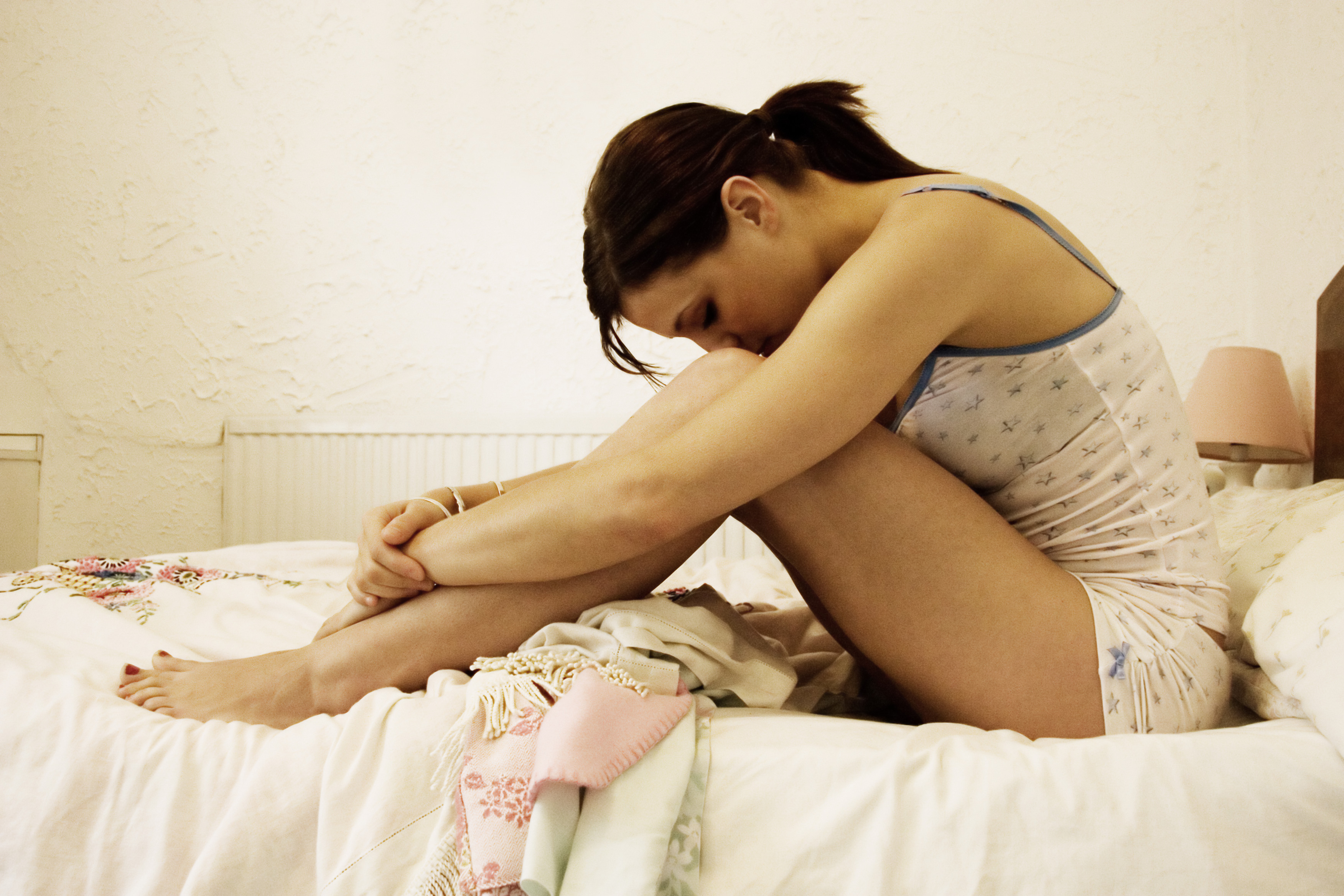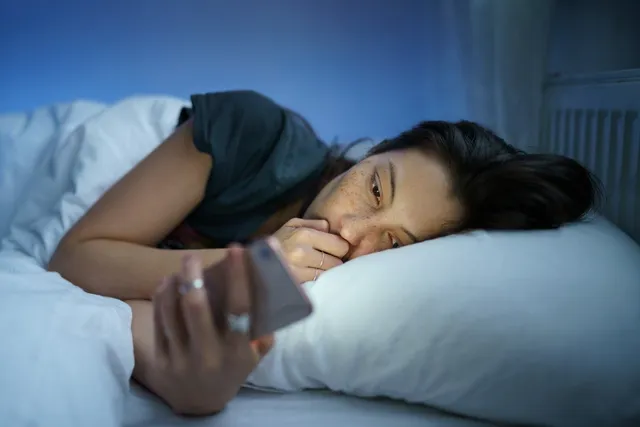University Level Loneliness: The Unexpected Link Between Social Isolation and College Insomnia

Oregon Researchers Challenge Popular Beliefs About What’s Keeping Students Awake at Night
Slumped against her dorm room wall at 2 AM, Amy Everett is scrolling through Instagram stories of classmates at a party she hadn’t been invited to. Despite having an 8 AM chemistry exam, sleep remained elusive, not because of the blue light from her phone as conventional wisdom might suggest, but because of something far more profound: the ache of feeling disconnected from those around her.
This scene in countless dorm rooms across America illustrates what Oregon State University researchers have confirmed through rigorous study: that loneliness, not screen time, is the primary driver behind the epidemic of sleeplessness plaguing college campuses nationwide.
The Surprising Culprit Behind Campus Insomnia
For years, the narrative around college sleep problems has centered on digital devices. Parents, professors, and health professionals have warned students about exposure to pre-bedtime scrolling and blue light. While not entirely without merit, this focus has missed the mark on what keeps young adults awake.
“We initiated the data, expecting to quantify just how much screen time was impairing students’ sleep,” explains John Richmond Sy, who recently completed his doctoral work at OSU and led the groundbreaking study. “What we uncovered instead challenges the predominant thinking about college insomnia, revealing that feelings of social disconnection show a substantially stronger association with sleep disturbances than time spent on electronic devices.”
More than 1,000 undergraduates at Oregon State University and Chaminade University of Honolulu were surveyed between April 2021 and September 2022. The researcher’s methodological process examined sleep patterns, perceived loneliness, and detailed breakdowns of electronic device usage during school days.
The findings show a stark picture of campus isolation and its consequences. Among respondents, 35% reported high levels of loneliness, and within this group, a staggering 63% experienced clinical symptoms of insomnia. This rate nearly doubles the sleeplessness reported by students with healthier social connections.
When Rumination Replaces Rest
These statistics reflect the lived reality for students like Marcus Edwards, a junior at Willamette University who wasn’t involved in the study but recognizes its conclusions in his own experience.
“There’s this weird casam where I’m surrounded by people all day but still feel completely alone sometimes,” Edwards shared. “Those are always the nights I end up staring at the ceiling until 3 AM, my mind racing through every awkward interaction and missed opportunity to connect with someone.”
This psychological phenomenon of rumination triggered by perceived social isolation appears central to the loneliness-insomnia correlation. According to Sy’s research, socially disconnected students report difficulty falling asleep, more frequent nighttime awakenings, and poorer sleep quality overall.
“Loneliness creates a heightened stress response and hypervigilance,” explains Dr. Maya Rodriguez, a sleep specialist at Northwest Sleep Medicine who wasn’t involved in the research. “Evolutionarily, feelings of social exclusion triggered alertness because group belonging meant survival. Today, that mechanism keeps lonely students physiologically aroused when they should be transitioning to sleep.”
Screen Time: Not Innocent But Overblamed
The research doesn’t completely exonerate electronic devices from the sleep equation. Students reporting lower levels of loneliness eventually showed sleep impacts from extensive screen usage, but the threshold proved surprisingly high.
“Eight to ten hours of daily screen time represented the tipping point where we began seeing heightened insomnia prevalence among otherwise socially connected students,” Sy notes. “This suggests that moderate electronic use likely isn’t the sleep destroyer it’s often portrayed as, particularly when compared to the profound impact of loneliness.”
This finding carries implications for how colleges approach student wellness. Current initiatives often emphasize digital detox events and screen-free zones, which, while valuable, may miss addressing the more profound social disconnection driving much campus insomnia.
The Modern Campus: Connected Yet Isolated
The research emerges amid growing recognition of a campus loneliness epidemic that predates but was exacerbated by the COVID-19 pandemic. Despite unprecedented digital connectivity, today’s undergraduates report higher rates of social isolation than previous generations.
Jenni Leatham, Director of Student Health Services at Reed College, sees this paradox daily. “Students arrive with hundreds of social media connections but struggle to form meaningful in-person relationships,” she observes. “They’re constantly aware of social activities happening around them, which can intensify feelings of exclusion when not participating.”
This awareness without participation creates what psychologists term “social comparison” – a particularly potent form of loneliness where individuals perceive themselves as less socially successful than their peers. For many students, bedtime becomes prime territory for these comparisons, as social media showcases others’ connections while they sit alone with their thoughts.
The Devastating Learning Impact
The data suggests that the effects extend beyond tired students in morning classes. Previous research has established that insomnia severely compromises learning capacity, the primary purpose of college attendance. Sleep-deprived students show impaired memory consolidation, reduced critical thinking abilities, and diminished overall academic performance.
“We’re effectively witnessing a hidden academic crisis,” says education researcher Dr. William Chen. “Students paying tens of thousands for education often can’t absorb material because their brains lack the sleep necessary for learning. The link to loneliness adds another dimension to this problem.”
Beyond academic impacts, insufficient sleep among college students correlates with concerning health and safety outcomes. Studies have documented connections between college sleep deprivation and:
- Increased depression and anxiety symptoms
- Weakened immune function
- Higher risk of substance use
- Elevated involvement in motor vehicle accidents
- Poor dietary choices and weight management issues
- Reduced athletic and creative performance
These consequences create a troubling cycle where sleep problems worsen mental health, further intensifying feelings of isolation that then exacerbate insomnia, a classic negative feedback loop trapping many students.
Breaking the Loneliness-Insomnia Cycle
The OSU research team recommends that universities redirect some resources from screen-time awareness to more substantive investments in campus community building and mental health support.
“Creating structured opportunities for genuine connection appears more beneficial than simply warning against technology use,” Sy explains. “Programs fostering a sense of belonging show promise in addressing loneliness and its sleep consequences.”
Some institutions have already begun implementing such approaches. Baylor University’s “Better Together” program pairs incoming first-year students with upperclassmen mentors, facilitating small-group activities throughout the critical first semester. Internal assessments show participants report significantly lower loneliness scores and better sleep metrics than non-participants.
Similarly, Stanford University has experimented with “connection courses” – one-credit seminars focused not on academic content but on facilitating meaningful student relationships through structured vulnerability exercises and collaborative projects.
For individual students navigating campus isolation, mental health experts suggest several approaches:
- Prioritizing depth over breadth in social connections
- Joining smaller interest-based groups rather than large general organizations
- Establishing regular schedules for both socializing and sleep
- Practicing self-compassion during periods of loneliness
- Seeking professional support when negative thought patterns persist
Beyond the Blue Light: A Paradigm Shift
The OSU findings represent a broader recalibration in how researchers understand the relationship between technology, social health, and sleep. While previous research correctly identified correlations between screen use and poor sleep, this new work suggests many of these effects may operate through social and psychological mechanisms rather than purely physiological ones.
“We’re moving from simplistic ‘screens are bad’ messaging toward more nuanced understandings of how different technology uses impact wellbeing,” notes digital health researcher Dr. Samantha Winters. “The same device can either intensify isolation or facilitate meaningful connection depending on how it’s utilized.”
This perspective shift is relevant to pandemic-era students whose college experiences were fundamentally shaped by necessary but isolating remote learning. For many, screens simultaneously represented their primary educational platform, social lifeline, and source of entertainment, creating complex relationships with technology that defy simple categorization.
Looking Forward: Research and Recommendations
The OSU research team acknowledges several limitations in their current work and outlines areas for future investigation. The cross-sectional design illustrated correlations but cannot establish causation, leading researchers to plan long-term studies tracking students throughout their college careers to understand better how loneliness and sleep patterns evolve.
However, questions remain about how these dynamics vary across different student populations. Initial analysis suggests that first-generation college students and those from underrepresented groups experience distinct patterns of loneliness and sleep disruption, justifying dedicated research attention.
For campus administrators, the findings suggest several concrete recommendations:
- Consider brainwave entrainment treatment programs targeting social anxiety and insomnia
- Integrate social connection programming into first-year orientation rather than treating it as optional
- Extend mental health resources beyond traditional therapy to include peer support networks and group interventions
- Design residence halls and common spaces to facilitate spontaneous interaction rather than isolated study
- Train academic advisors to recognize signs of loneliness and make appropriate referrals
- Incorporate sleep education into required wellness courses, with emphasis on psychological factors beyond screen habits
Conclusion: Reframing the College Sleep Conversation
The Oregon State findings ultimately call for a fundamental reframing of how we approach college student sleep health. Rather than focusing narrowly on sleep hygiene practices and screen restrictions, a more holistic approach addressing the underlying emotional and social factors appears warranted.
“We need to acknowledge that telling lonely students to put away their phones at night without addressing their isolation may worsen their situation,” Sy concludes. “Sometimes that late-night text conversation represents an all-important social connection rather than mere distraction.”
For students themselves, this research offers both substantiation and hope—recognition that their sleep struggles reflect genuine social needs rather than poor habits and that meaningful connections can improve both rest and overall well-being.
As campus communities continue to explore the complex landscape of technology, belonging, and health, this research illuminates a path forward that acknowledges both the neurological reality of sleep and the profoundly human need for connection that follows us even into our dreams.
David A. Mayen is Founder and Program Director for Sleep Recovery, Inc., A telehealth practice specializing in EEG training for social anxiety among youth and college-aged adults. They can be reached at: 1 800 927-2339 or by visiting https://sleeprecovery.net.
.


